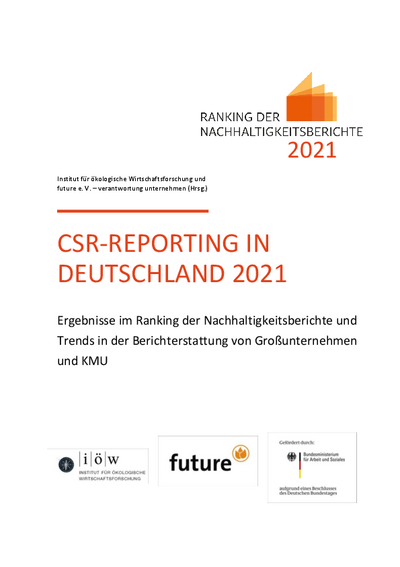CSR-Reporting in Germany 2021 Results of the ranking of sustainability reports and reporting trends in large companies and SMEs
In the eleventh round of the ranking of sustainability reports, the Institute for Ecological Economy Research (IÖW) and the business association future e.V. have once again analysed and evaluated the sustainability reports of the 100 largest German companies as well as selected small and medium-sized enterprises (SMEs) using a comprehensive set of criteria.
The publication addresses various trends in sustainability reporting as well as strengths and weaknesses: While, for example, the topic of climate protection is reported on in detail by most companies, there are large gaps in the areas of supply chains and biodiversity, among others. Overall, the companies report more on targets than on action plans or measures to achieve them. Indicators by which the achievement of goals can be measured are also only partially presented.
Due to a revision of the assessment criteria, the requirements for good sustainability reporting have risen sharply in this round. The companies were unable to keep up with this on average. However, the standardisation of sustainability reports remains at a high level: the reporting standards of the Global Reporting Initiative (GRI) as well as external report audits are still widely used.
Among the SMEs, the furniture manufacturer Assmann, the food producer Lebensbaum and the beverage producer Neumarkter Lammsbräu provide the three best sustainability reports. Among the large companies, the best reports come from Deutsche Telekom, the Rewe Group and Merck.



